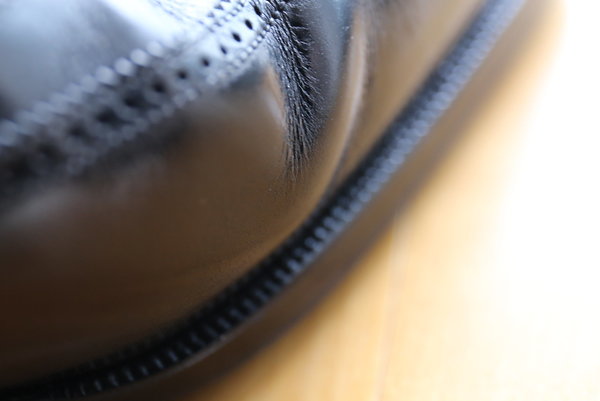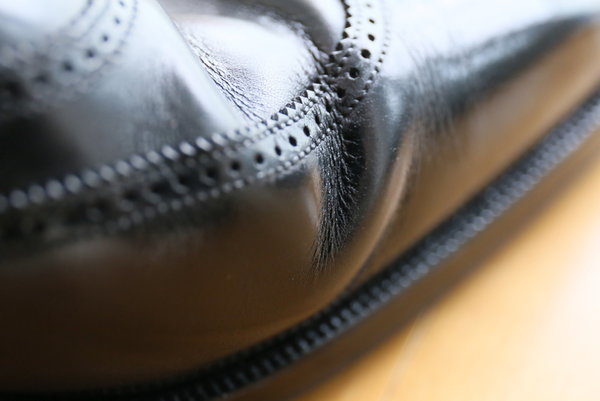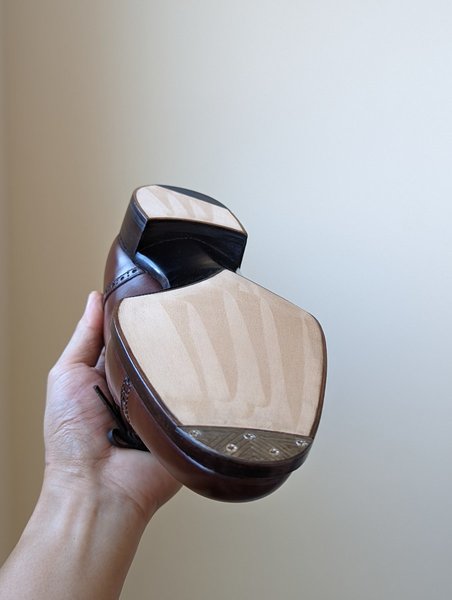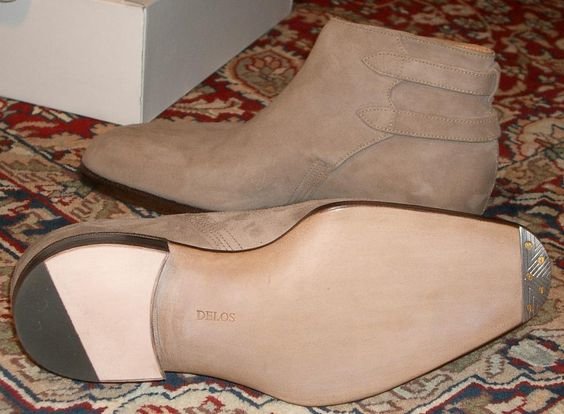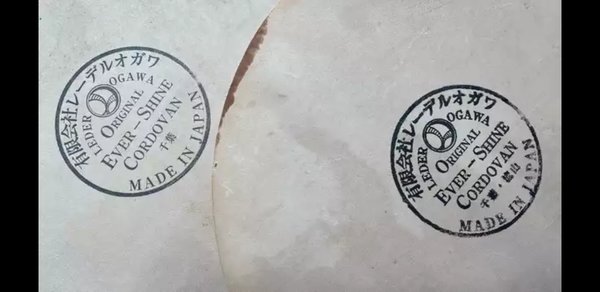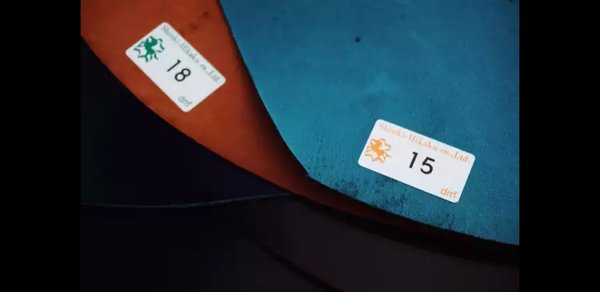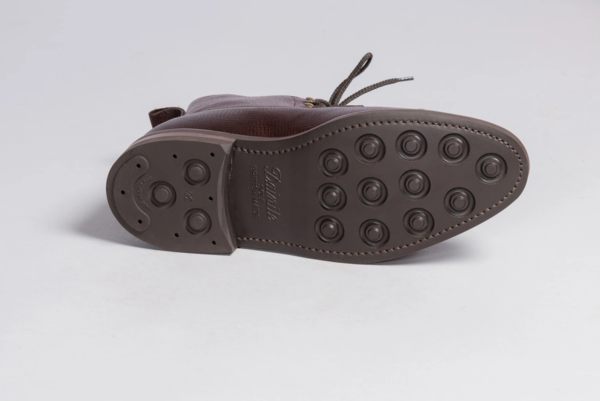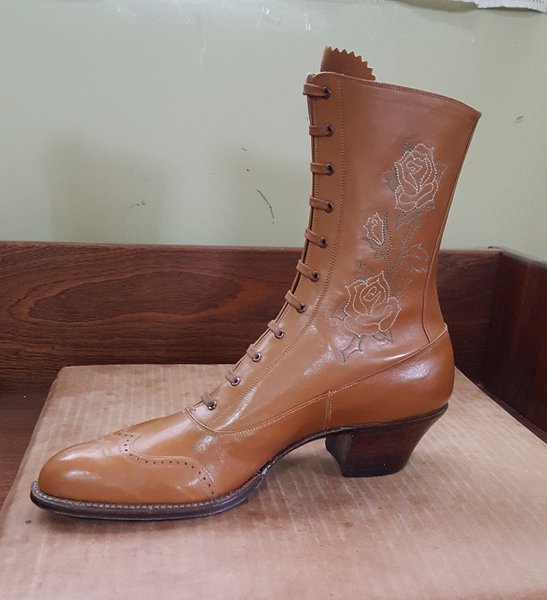chogall
Distinguished Member
- Joined
- Aug 12, 2011
- Messages
- 6,562
- Reaction score
- 1,166
Problem is I'm leery of the British approach because I worry about the puckering that is created. I suspect that's all down to leatehr thicknesses and technique but i haven't yet tried it so I don't know. I also worry that making a "line" of stitches so close tot eh edge of the insole makes them vulnerable to the nails that hold the heel seat and the outsole on. Again probably just a matter of experience.
Beyond that, the inseam is a whole 'nuther ball game--from the type of stitch to the way it sucks the upper, upperlining and welt into the rebate at the feather. IMO none of that is needed or even possible in the heelseat. It's not needed because the nails or pegs hold everything together not possible because if you include the heel stiffener you get heavy puckering on top of the insole. and did I mention vulnerability to nails?...same reason I don't particularly favour flush mounted toe plates.
In the photo above (mine) the surface of the upper in the heel area is very little more than the the thickness of the upper above the surface of the insole. That leaves a flat smooth arena to mount the outsole an heel with no potential gaps underneath. I like that.
And it is what I learned and am comfortable with...just as others learned and are comfortable with the the British technique.
So there you have it (or some of it)...again. I did this once before at the beginning of this particular strand of the discussion. I didn't want to do it again because in this context it sounds too much like a comparison. And I do not wish, or have any direct intention, to criticize any other maker or techniques that I have no real or more particularly, extensive experience with.
And again, you could have gotten all this (my take) on your own, if you simply exercised enough real curiosity to read my original remarks.
But you asked. And I'm nothing if not responsive...if approached with a modicum of respect.
That's actually a good reason to use whip stitching/"French" style vs the "British" style. On the flip side decent shoemakers would avoid nailing onto the "British" style stitching. Don't think there's much chance of puckering at least from the pictures shared by dozens of shoemakers online.
The reason I asked is that for the inseaming space around the toe tip area is narrow/small/curved, not too dissimilar to the heel seat area.
Both style can be done beautifully as shown in the above pictures and I initially raised the question in an effort to understand the rationale behind the choices. Seems like both are traditional and some makers prefer one to another.
That said, I've seen an variation of "French" style of heel stitching; upper to insole stitches were there but insole to insole/horizontal stitching were omitted. Stitching came loose and the worksmanship is sub par.


